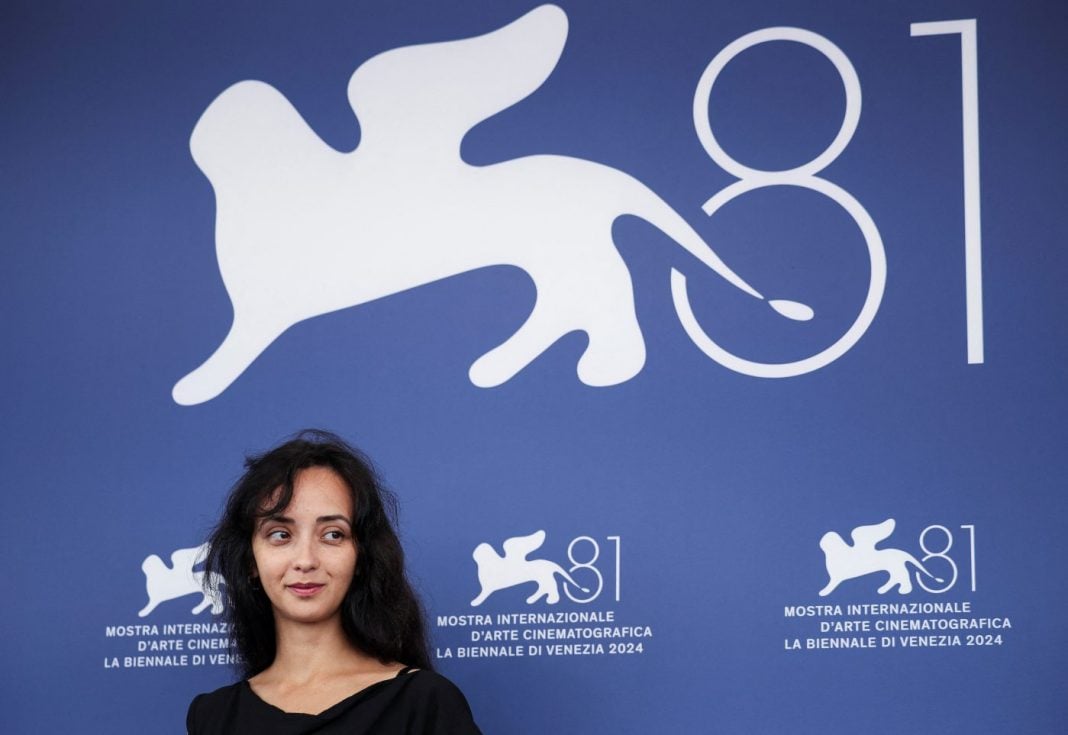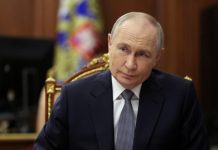By Edward Lucas, for CEPA
Anastasia Trofimova, a Russian-Canadian filmmaker, says she did not witness any war crimes during the seven months she spent embedded with a Russian army battalion in eastern Ukraine. Ukrainians have not been so lucky. And adding insult to the murders, rapes, castrations, beatings, and other atrocities, Trofimova’s film, a sentimental look at Russian soldiers’ daily lives, just premiered at the Venice Film Festival.
It gets worse. The supposedly independent film was subsidized by $250,000 of Canadian taxpayers’ money. Next up is Toronto, where it is billed as “a spellbinding tale of sacrifice and disillusionment in which soldiers resemble pawns in a nefarious game.”
Ukrainians and their friends will see this rightly as part of Russia’s lingering hegemonic influence over world culture. Whether the gatekeepers of subsidy and film festival admission are just plain ignorant, or plagued by the phony fair-mindedness that gives equal weight to perpetrator and victim, is secondary. Russia’s story gets told because Russia is big and matters. Ukraine? We did that already last month. Maybe next year.
One answer to this is to protest. The decision-makers should expect a storm of criticism for their mistakes. Lawmakers should ask questions. So should sponsors. Festival-goers can complain. With luck, Trofimova’s film may eventually serve a useful purpose, as a career-killer for all those so shamefully involved in making and promoting it.
But bashing modern (or even historical) Russian films, books, and pictures for concealed or blatant imperialist content is only part of the answer. Just as important is to promote alternatives. Showcasing the history and culture of Ukraine, and of other current or former captive nations, provides a positive counterweight.
A particularly useful example of this thudded through my letterbox this week: a copy of “No Country for Love,” the debut novel by Trofimova’s near-namesake, the distinguished Wall St Journal journalist Yaroslav Trofimov. Born in Soviet Ukraine, he has written three non-fiction books, including an acclaimed history of the start of Russia’s full-scale invasion, “Our Enemies Will Vanish.”
The novel tells Ukraine’s 20th-century trauma through the eyes of a central character, Debora (later Darya), who rides the wave of naive Ukrainian enthusiasm for communism in the late 1920s, before being caught up in the horrors of famine, Stalinist purges, the war, Nazi and Soviet antisemitism, russification, forced collaboration, deportation and other features of those tormented decades. Despite the daunting historical background, Trofimov weaves the necessary facts lightly into the plot. Those who do not read history books for fun will not feel they are being lectured.
He also avoids caricature. The NKVD characters are all too believable: human failings like cowardice and greed stoke their inhuman brutality. The descriptions of daily life, even in the most hellish conditions, are pitch-perfect. Among the Soviet Union’s most distinctive features was the smell. It wafts from his pages.
Rather than spoil the plot by summarizing it, I offer this paragraph to give a flavor of the book’s depth and power.
“We are up against history. History is a wild and bloodthirsty animal. It is on a rampage through this country again, breaking and remaking it anew. You can’t stand in its way and you can’t stop it. All you can hope is that it misses you as it lashes out and claws its way forward. That it doesn’t notice you. That it crushes someone else. All you can do is try to be invisible. Invisible to survive.”
That is spoken in Ukraine in the early 1930s. It could just as well be set in a missile-ruined city right now. I doubt Trofimova will read it. But you can. And so can your friends.
By Edward Lucas, for CEPA
Edward Lucas is a Non-resident Senior Fellow and Senior Adviser at the Center for European Policy Analysis (CEPA).
Europe’s Edge is CEPA’s online journal covering critical topics on the foreign policy docket across Europe and North America. All opinions are those of the author and do not necessarily represent the position or views of the institutions they represent or the Center for European Policy Analysis.





